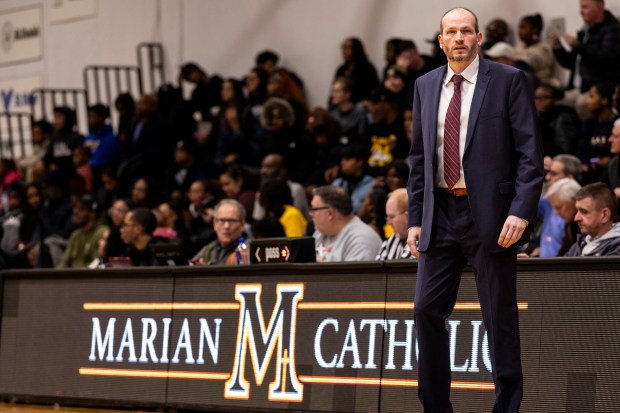Artificial Intelligence (AI) has rapidly evolved into a transformative force in education, reshaping how students learn and prepare for the workforce. From personalized learning experiences to enhanced administrative efficiency, AI’s integration into high school and college classrooms is redefining traditional education. Moreover, the skills and insights gained from using AI tools in education translate effectively to business settings, including employment interviews, highlighting the growing importance of AI literacy in today’s world.
AI in Classrooms: Transforming Learning Experiences
AI technologies have found significant applications in high school and college classrooms, offering solutions that enhance both teaching and learning. One prominent use is in adaptive learning platforms, such as DreamBox and Khan Academy, which adjust content and pacing based on individual student needs. These platforms analyze student performance in real-time, identifying strengths and weaknesses to provide tailored support. For instance, a high school student struggling with algebra might receive extra practice problems and video tutorials, while an advanced student could be offered more challenging material to maintain engagement.
Another major application of AI in education is automated grading. Tools like Gradescope and Turnitin use machine learning algorithms to evaluate assignments, saving teachers valuable time and providing students with faster feedback. This is particularly useful in large college classes where manual grading can be time-intensive. Furthermore, AI-powered writing assistants like Grammarly help students improve their communication skills by offering suggestions for grammar, tone, and clarity.
AI also facilitates accessibility and inclusion in education. Tools like Microsoft Immersive Reader and speech-to-text applications empower students with disabilities by making content more accessible. For example, a visually impaired student can use text-to-speech software to listen to course materials, while a student with dyslexia might benefit from enhanced readability features like font adjustments and line spacing.
Chatbots and virtual assistants are becoming increasingly common in academic settings as well. Universities deploy AI-powered chatbots to answer routine student queries about admissions, financial aid, or class schedules, reducing administrative burdens and enhancing the student experience. These virtual assistants also serve as study aids, offering 24/7 support for students who may need help understanding course material outside regular class hours.
AI as a learning tool for employment preparedness
The integration of AI in education prepares students for the workforce by fostering essential skills such as critical thinking, problem-solving, and digital literacy. High schools and colleges increasingly incorporate AI-related curricula, teaching students how to interact with, design, and manage AI systems. For example, coding classes often include modules on machine learning or data analytics, giving students a head start in understanding how AI operates in professional environments.
Simulation-based learning powered by AI is another innovative approach to career readiness. Virtual labs and AI-driven simulations allow students to practice real-world scenarios in a controlled environment. A nursing student, for instance, can use virtual patient simulations to hone diagnostic skills, while business students might participate in AI-driven market simulations to develop strategic decision-making abilities.
Moreover, AI helps students build soft skills, which are crucial for success in business and employment settings. For instance, platforms like Mursion use AI-driven virtual reality to simulate workplace scenarios, enabling students to practice communication and interpersonal skills. These experiences are invaluable in preparing students for job interviews, team collaborations, and leadership roles.
AI in business and employment interviews
The transition from academic settings to professional environments often involves leveraging AI-driven skills and tools learned in school. Many businesses now use AI in their hiring processes, from resume screening to interview assessments. Understanding these systems gives students a competitive edge.
AI-powered applicant tracking systems (ATS) are commonly used to filter resumes based on keywords and qualifications. Job seekers familiar with how these systems work can optimize their resumes to align with specific job descriptions, increasing their chances of securing an interview.
During interviews, AI tools like HireVue assess candidates through video analysis, evaluating factors such as facial expressions, tone of voice, and word choice. While these tools aim to reduce bias and improve efficiency, they also underscore the importance of digital fluency. Candidates who have practiced with AI-driven mock interview platforms can better navigate these assessments, demonstrating confidence and adaptability.
Furthermore, the collaborative skills developed through AI-powered educational tools translate directly to the workplace. For instance, students accustomed to using project management platforms like Trello or Slack, enhanced with AI features, can easily adapt to similar tools in professional settings. This familiarity not only boosts productivity but also highlights their readiness for a tech-driven work environment.
Challenges and ethical considerations
While the benefits of AI in education and employment are significant, challenges remain. Data privacy is a major concern, as AI systems often require access to sensitive information. Schools and businesses must ensure robust security measures to protect user data. Additionally, there is a risk of over-reliance on AI, which could undermine the development of critical thinking and creativity if not balanced with traditional learning methods.
Ethical considerations also arise in the use of AI for hiring. Critics argue that algorithms can perpetuate biases present in the training data, potentially disadvantaging certain groups. Transparency and fairness must be prioritized to ensure that AI-driven tools promote equity rather than exacerbate existing disparities.
AI is revolutionizing education by personalizing learning, streamlining administrative tasks, and fostering essential skills for the modern workforce. Its applications in high school and college classrooms not only enhance the educational experience but also prepare students for professional success. As businesses increasingly adopt AI in hiring and operations, the ability to navigate and leverage these technologies becomes a critical asset. By addressing challenges and ethical concerns, educators and employers can maximize the benefits of AI, ensuring that students and job seekers alike are well-equipped for a rapidly changing world.
Gerald Bradshaw is an international college admissions consultant with Bradshaw College Consulting in Crown Point.





